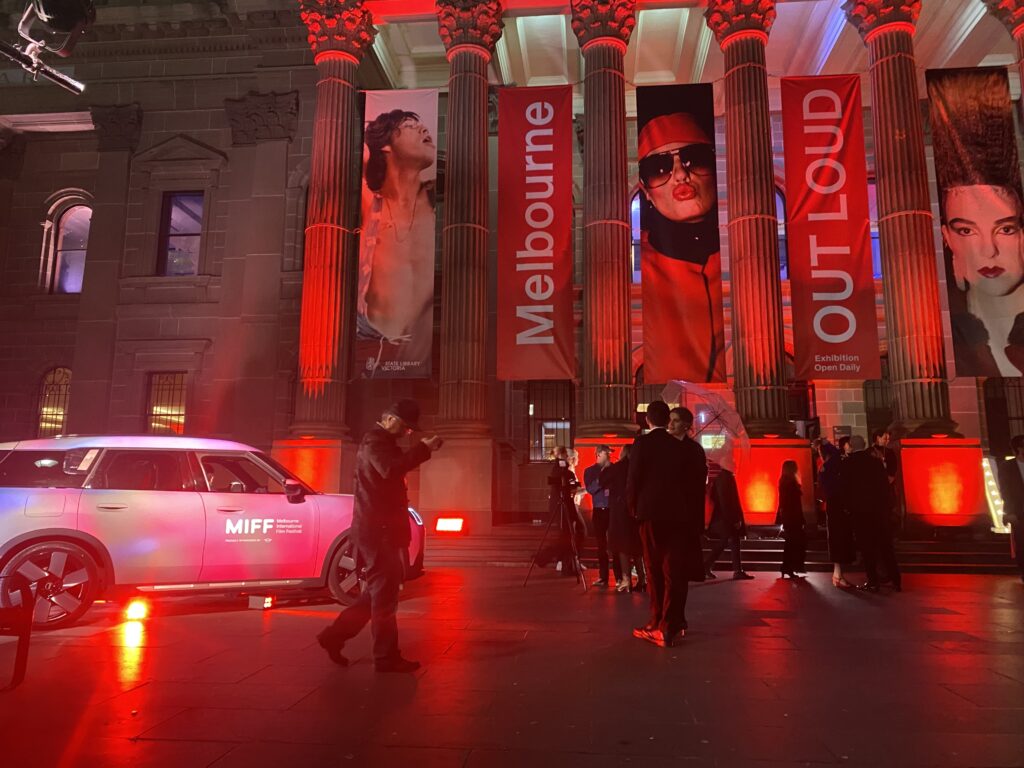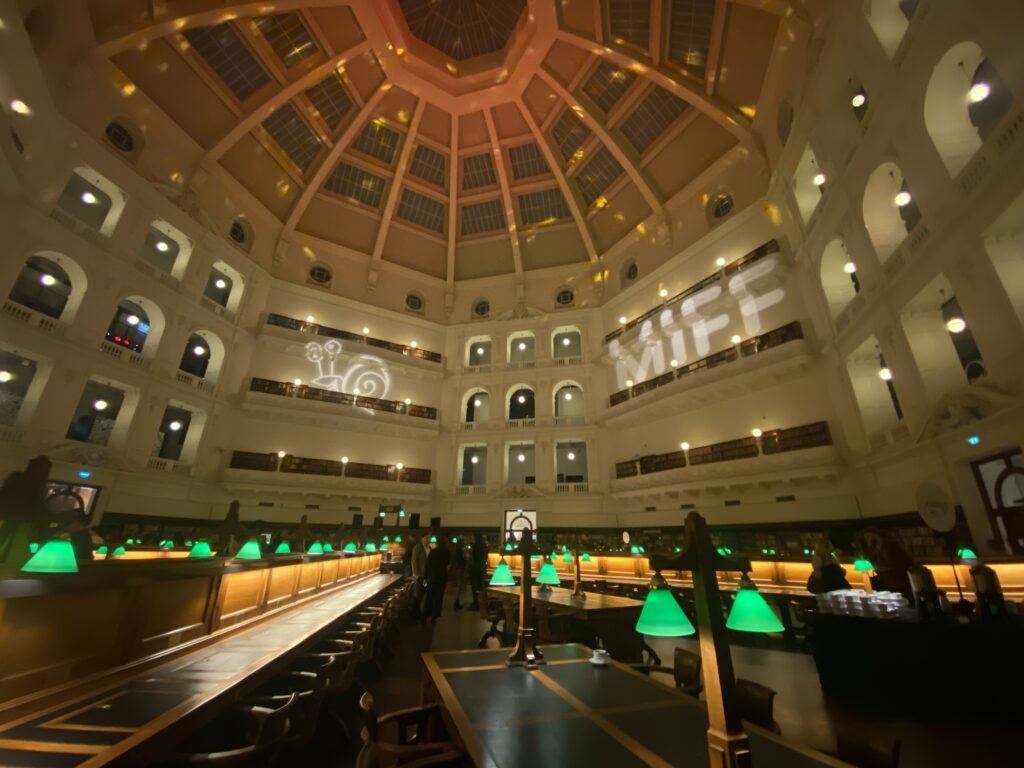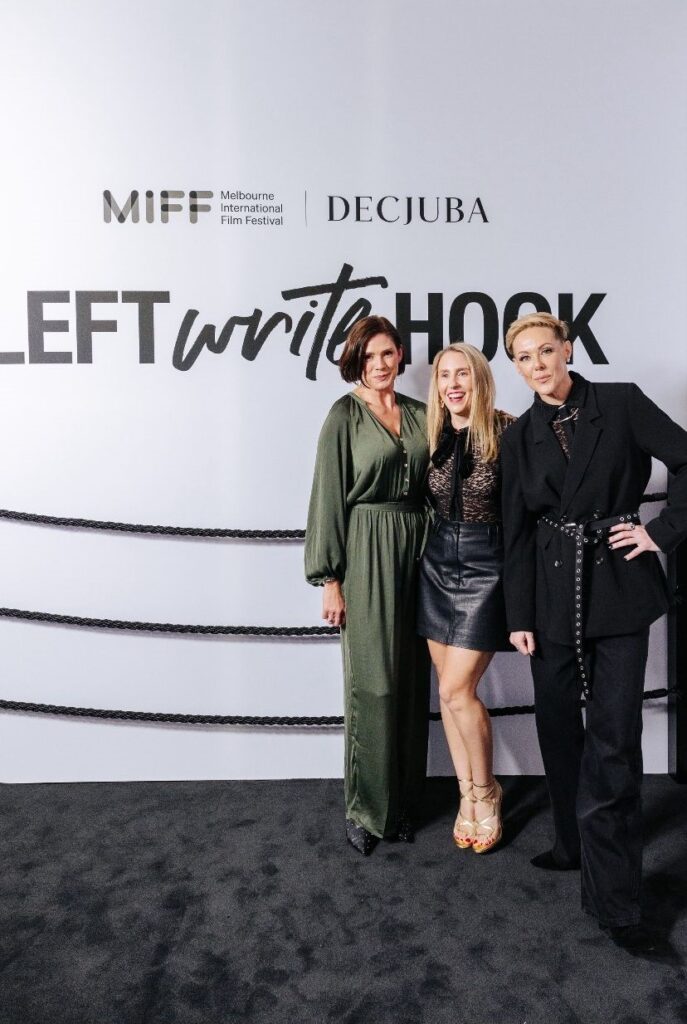MIFF matches its theory of change with meaningful practice
With more films scheduled at historic venues like the Forum and Astor Theatres, as well as the Gala afterparty takeover of the State Library Reading Room, the Melbourne International Film Festival has never felt more Melbournian.


From opening night to the final weekend of August, MIFF has once more proven why voyeuristic cinephiles and Melbournians of all stripes are willing to emerge from their living rooms and brave perilous bluestone lanes and rickety tramlines (I’m looking at you, 64 to Windsor) to see what the festival has to offer.
It succeeded in spotlighting a range of hotly-anticipated headliners (Megalopolis, I Saw the TV Glow, and All We Imagine As Light), local debuts and restorations (The Cars That Ate Paris, gala-featured Memoir of a Snail, and friends-of-Wendy-Brooks-&-Partners Left Write Hook), as well as hand-picked international cuts from Latin America, Africa and the Middle East, the Asia Pacific, and beyond: All We Imagine as Light and Armand included.

This is all in keeping with the organisation’s vision for Melbourne, which is an enlightened, inclusive, and engaged society achieved through film. It is clear to both supporters and moviegoers at the festival that MIFF are achieving this vision by providing curated and unforgettable screen experiences (which happens to be their mission). The programming choices outlined above (spearheaded by Kate Fitzpatrick and Kate Jinx, though drawing on local critics of various creeds) provided audiences with local and international entertainment which consistently stimulated curiosity, stirred emotions, and provoked.
One illustrative example of MIFF’s praxis, Santosh (2024, dir. Sandhya Suri) gave audiences a glimpse at the complex interplay of gender inequality, police corruption, and justice-gone-awry in the context of northern India. A collaborative production between Indian and British producers, the film stars Shahana Goswami (as Santosh) and Sunita Rajwar (as Geeta) as members of a local, all-women police force seeking the murderer of a teenage girl from a small, minority village, the ‘Dalit’ caste.
Suri’s debut feature is a grounded and educational depiction of how good intentions rarely survive bad systems, but it doesn’t devolve into didacticism, and even the villainous characters who misuse their power are somewhat understandable, once their intentions are revealed. In all, it’s a thoroughly provocative and purposeful addition to the MIFF calendar, one that demands its audience to think critically about a different culture and system of power without passing judgement on that whole culture or system.
And beyond just programming, MIFF’s Opening Gala also embodied the vision, mission, and core values of the organisation: creativity, inspiration, integrity, and independence. The pre-screening introduction included a Welcome to Country from Aunty Di (an Elder of the Wurundjeri Tribe), and speeches from Chairperson Teresa Zolnierkiewicz, Artistic Director Al Cossar, Minister for Creative Industries Colin Brooks MP, and director Adam Elliot. Aussie greats Sarah Snook, Kodi Smit-McPhee, and Liz Kearney also made appearances on the red carpet at Melbourne Central Hoyts!
Zolnierkiewicz’ speech recognised important supporters (including the Decjuba Foundation, Donor Circle, corporate partners, the University of Melbourne, and more), while Al Cossar celebrated the “square of eye, short of sleep [movie] watchers” who come to see the “Melbourne-made, Melbourne-centric” [Zolnierkiewicz] films presented by MIFF each year. Overall, their speeches projected an energised organisation – one that appreciates its supporters and takes pride in its achievements.
With the Bright Horizons film competition, Critics Campus, MIFF Schools, Talks, and Premiere Fund, the organisation has demonstrated its capacity for impactful, purposeful initiatives – beyond presenting the most interesting and exciting films well before their theatrical releases, that is! These programs and initiatives give many different kinds of supporters—those with interests not only in arts but in education, public engagement, employment, and entertainment—something to engage with and provide donations to support, ultimately making it a little easier for MIFF to demonstrate its value and find funding from impassioned supporters.
But for now, it’s goodbye from us, MIFF – we can’t wait to see what you have in store for 2025.